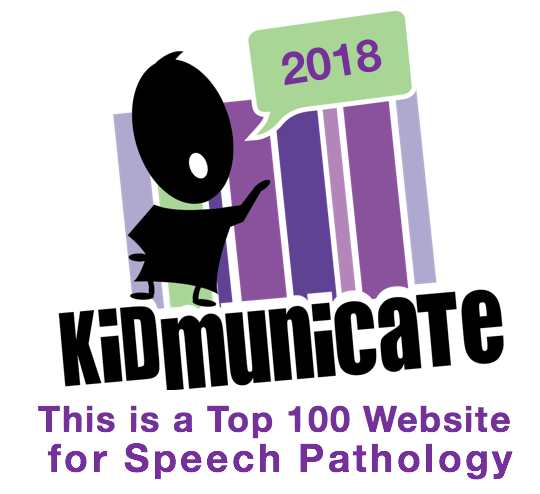Online learning has always been an option, and MedBridge has elevated the format with their professional development courses. After developing many offerings for PT and OT, they have reached into speech-language pathology in the past several years, and specifically have endeavored to create relevant courses for school-based clinicians. I was asked to create several courses for MedBridge in the past year (see disclosure), and have been very impressed with their process.
The features of their courses and website are designed to leverage all of the possibilities of the format, for sure. First of all, the process of creating the course is geared toward maximizing learner engagement. Presenters go onsite to MedBridge’s studio and film their course in person (I felt like I was on TV myself!) so that the result is a high-quality video presentation. There are many additional features to their courses that make the experience comparable to attending PD sessions in person, including:
- Engaging visual presentations; these courses are more like watching a talk show than a PowerPoint
- Modeling of techniques with students and clients
- Q/A sessions with real professionals within the videos
- An easy-to-follow progression of “chapters” within each course, along with the ability to complete each course with breaks, at your own pace
- Downloadable handouts and extension activities for you to apply the material in the course
- Learning assessments that feature real-world, practical (but short) case studies followed by questions to gauge your own understanding of the material presented
- Multiple-part courses (each with CEU value) for in-depth learning
Over the past several months, I myself completed two courses through my MedBridge membership:
Balancing & Scheduling Speech-Language Workloads in Schools, presented by Kathleen Whitmire.
In this course, Dr. Whitmire describes the workload model to managing productivity in the school setting. I had seen Dr. Whitmire previously, and her presentation years ago inspired me to implement the 3-1 Consultation model at my school, revolutionizing my role and teaching me how to be an effective collaborator and consultant. These skills are hugely important to my current work in private practice and consulting to schools. This course was very engaging and I found several elements to be helpful to me and potentially extremely helpful to clinicians first encountering these ideas. Dr. Whitmire describes “activity clusters” which help define the workload vs. caseload approach and will be very valuable to SLPs looking to open conversations with administrators about optimizing their role in their settings. Additionally, one major issue with transitioning to a workload and/or 3-1 approach is getting started. Dr. Whitmire offers some very do-able suggestions to taking these steps gradually. As is often the case within the MedBridge library, one course may lead to another. I plan also to take Dr. Whitmire’s courses in effective collaboration and educationally relevant speech-language services.
Focusing on Friendship: Building Social Groups That Work for Children with Autism, presented by Laura DeThorne
Dr. DeThorne’s information on engaging with first-person perspectives of students, including a Q/A with an autistic researcher (he describes why he prefers that descriptor), were very informational to me and changed MY perspective on identity- vs. person-first language. It is important to note that this discussion suggests steps that align with considering client values, a tenet of evidence-based practice. This aspect of the course dovetailed extremely well with the following chapters, which provided practical advice on creating interest-based social “affinity” groups, including examples of potential activities and measurable goals that focus on “interaction rather than individual skills.”
I hope that you will check out MedBridge’s offerings when planning your PD activities over the coming year. My courses are still in post-production, and include one on developing narrative and expository language using tech resources, and another on alignments between research-based practices and app-based activities. Currently you can subscribe to MedBridge’s offerings using my affiliate link at a greatly reduced price of $95.
Disclosure: Sean Sweeney has contracted with MedBridge to provide two courses and is part of their affiliate partner program. He will receive a royalty when his courses are available and are completed by members. Additionally, he receives a commission for each membership purchased through his affiliate link. However, the review detailed in this post represents Sean’s independent evaluation of several courses he completed through the MedBridge site.






High quality PD courses are important for continuous professional growth and staying updated with the latest industry trends. For those seeking advanced degrees, including dissertation data analysis services into your routine can significantly improve your research quality. These services provide expert support, ensuring your data analysis is precise and well-structured.
ReplyDelete